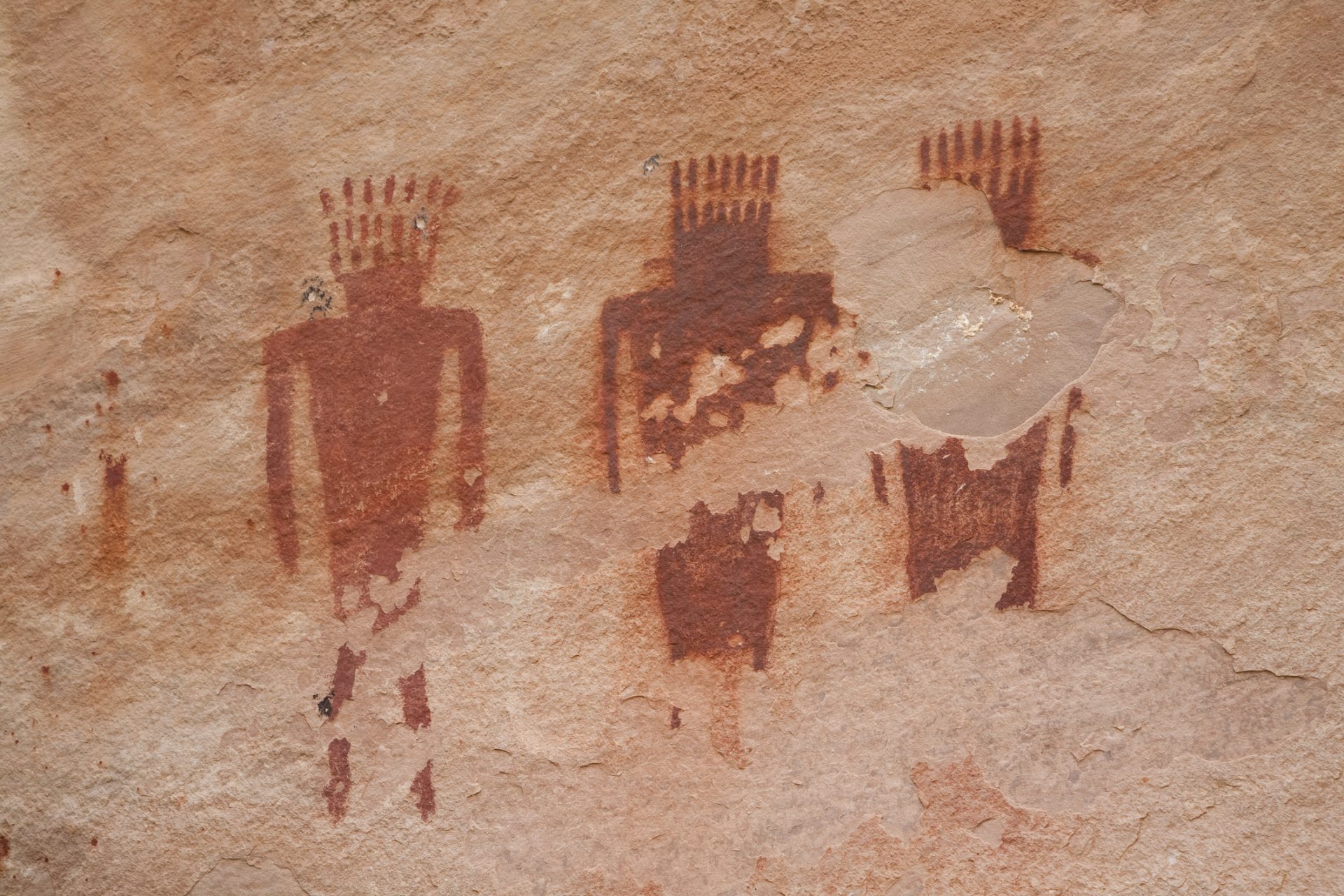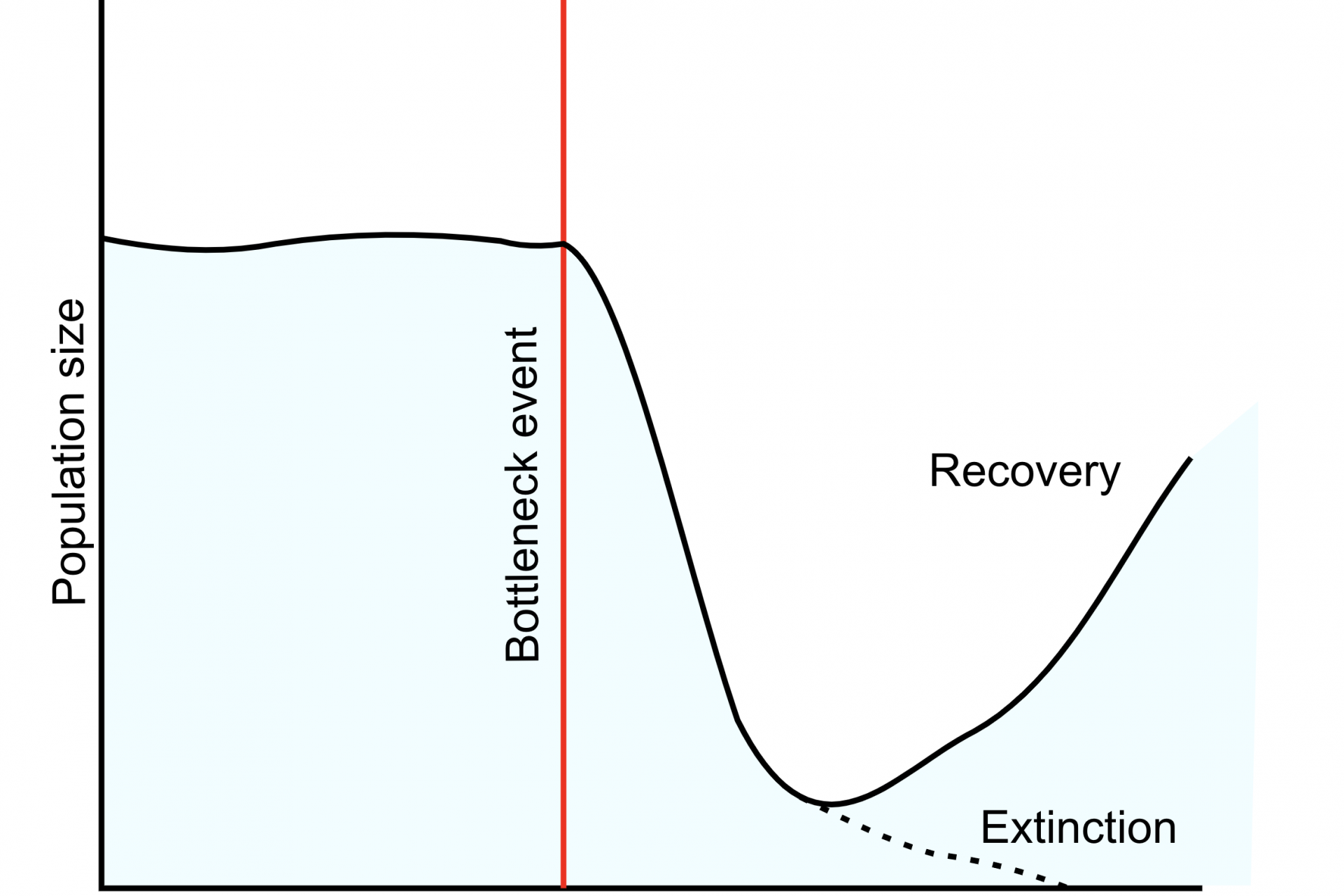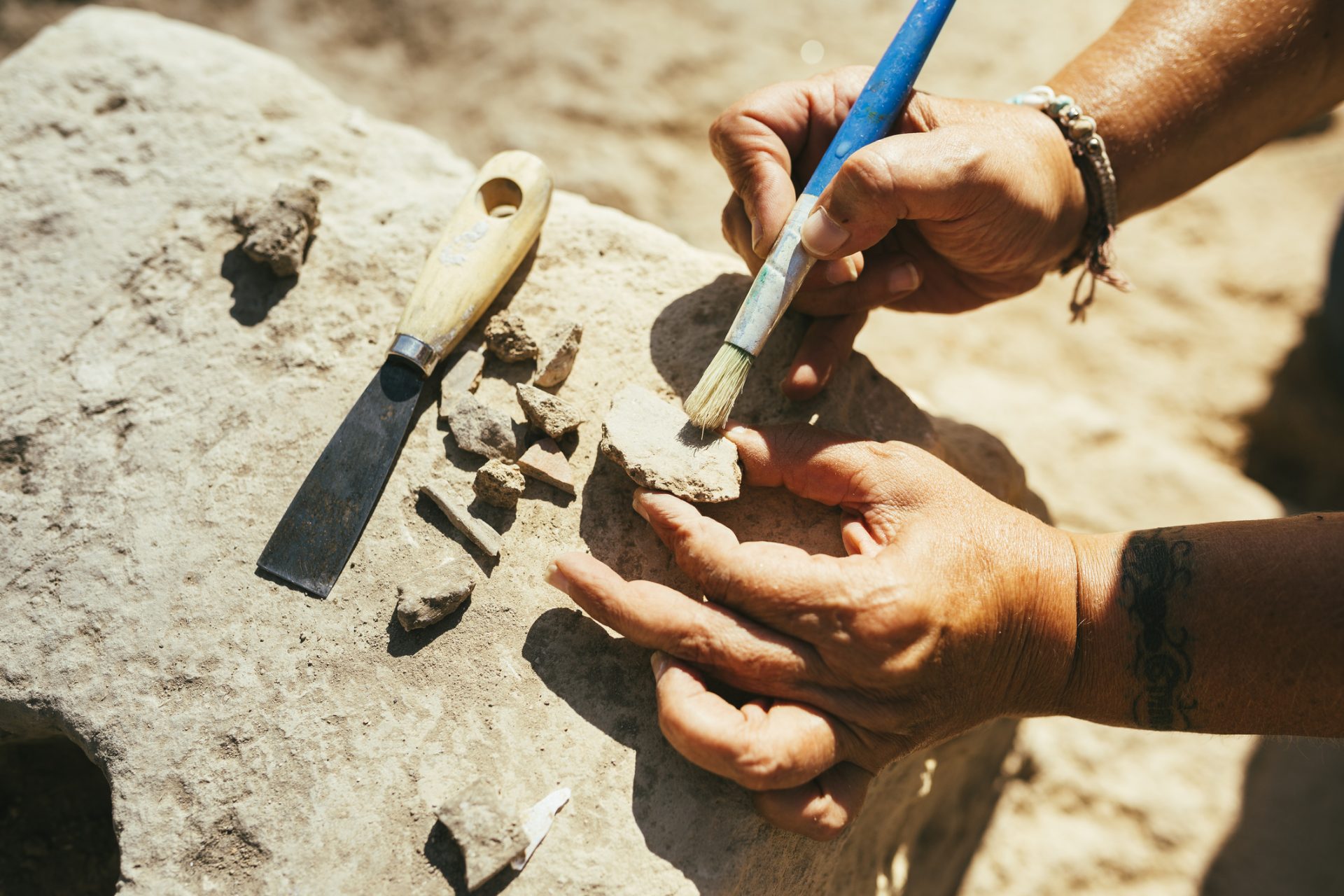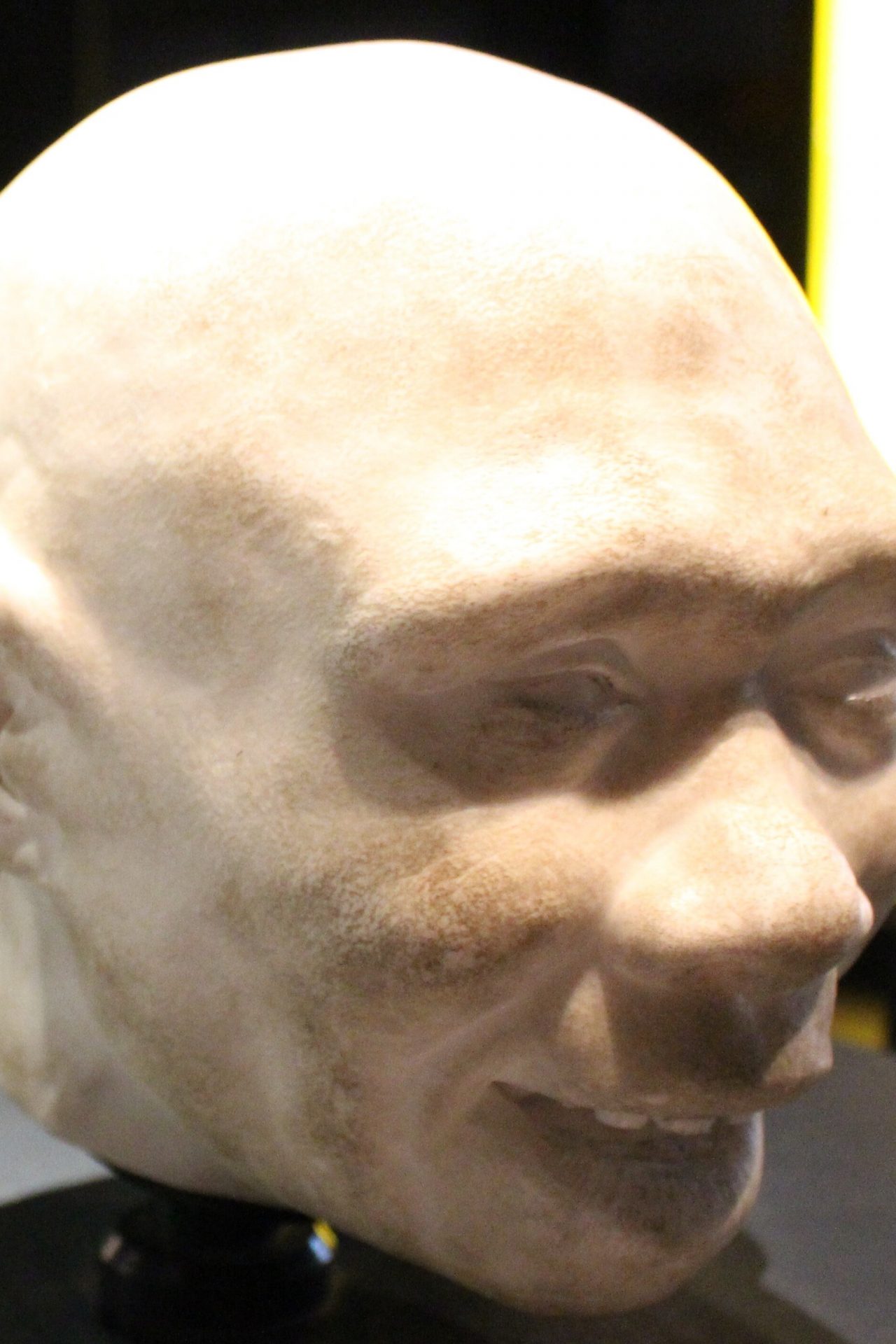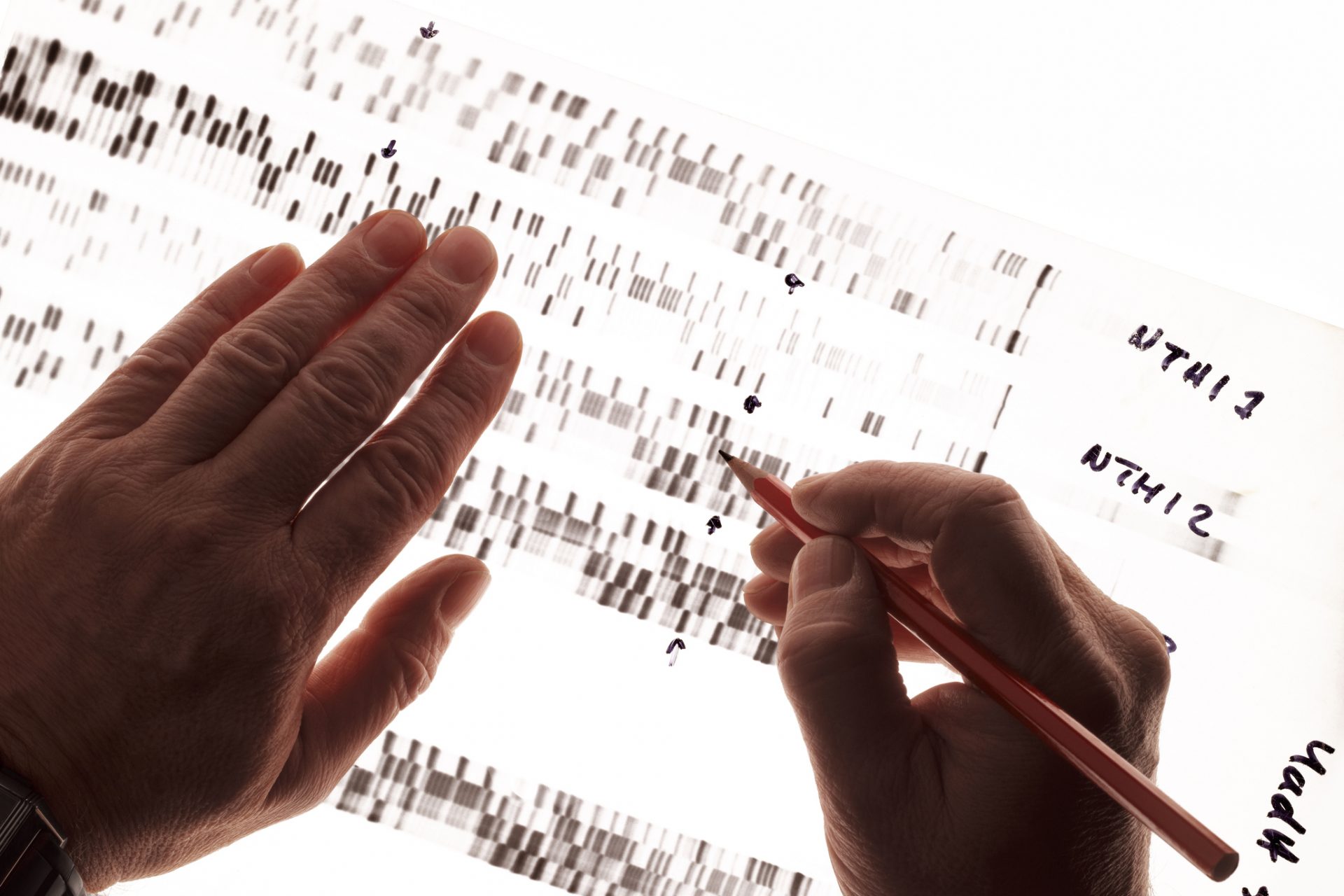Humans almost went extinct in our prehistoric past
Humans are an incredibly resilient species but our ancestors were once on the verge of extinction according to research from 2023 that found Homo Sapiens almost ceased to exist. Here's what researchers found.
A study published in the journal Science in August 2023 used a brand new type of genetic sequencing technique to show that the human population experienced a frighteningly severe population bottleneck in the past.
Photo Credit: Wiki Commons By Mysid at English Wikipedia
“The numbers that emerge from our study correspond to those of species that are…at risk of extinction,” study senior author Giorgio Manzi said according to The Guardian.
Photo Credit: Twitter @gi_manzi
Just how low did the numbers go? Well, if the new study is correct, the number of those walking the planet got all the way down to 1280 breeding individuals, the study reported.
“About 98.7% of human ancestors were lost,” study co-lead author Haipeng Li explained according to Nature, adding the discovery might “explain the chronological gap.” But what did Li mean?
Our near extinction happened sometime between 930,000 and 813,000 years ago the researchers wrote in their study and the population bottleneck lasted for what they believe was 117,000 years.
The researcher's dates match up well with a major gap in our fossil records from Africa and Eurasia during this time period, which means the study really could have unlocked a piece of our past we didn't know about.
“We know that between about 900,000 and 600,000 years ago, the fossil record in Africa is very scarce, if not almost absent, while both before and after we have a greater amount of fossil evidence,” Manzi explained.
“The same can be said for Eurasia: for example, in Europe, we have a species known as Homo antecessor around 800,000 years ago and then nothing for about 200,000 years,” Manzi continued.
Photo Credit: Wiki Commons By Emőke Dénes, CC BY-SA 4.0
Researchers were able to make this incredible discovery because of the new tools they created for the specific purpose of studying our ancestors through the human genome.
Nature pointed out that advances in genome sequencing have allowed scientists to look at our past through the lens of genetics and fill in the details about our collective history.
One of the biggest limiting factors in exploring early human history has been our lack of DNA material according to Yale University in New Haven anthropologist Serena Tucci.
However, the new technique developed by Li and his fellow researchers allowed them to rebuild ancient populations using genetic data from humans alive today, Nature noted.
Photo Credit: Unsplash By Naassom Azevedo
The technique pinpointed a population bottleneck during a period of time that was rife with the types of environmental and climate conditions that were hostile to humanity.
This period was known as the Early-Middle Pleistocene transition and saw glacial cycles become longer, leading to long droughts in Africa and the possible emergence of Homo heidelbergensis—an ancestor of Neanderthals and Denisovans according to Nature.
“Our findings indicate that the severe bottleneck brought the ancestral human population close to extinction and completely reshaped present-day human genetic diversity,” the authors write in the study, which in turn has reshaped our understanding of our history.
More for you
Top Stories



